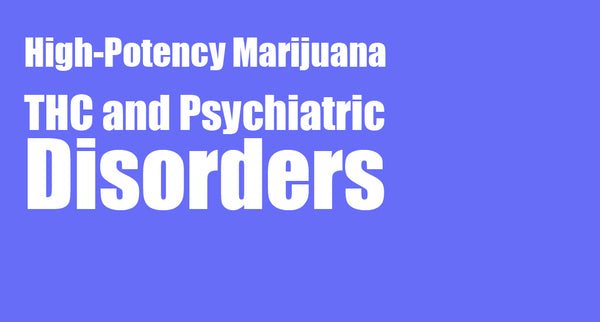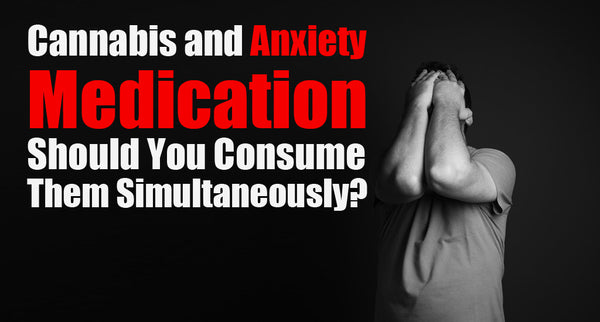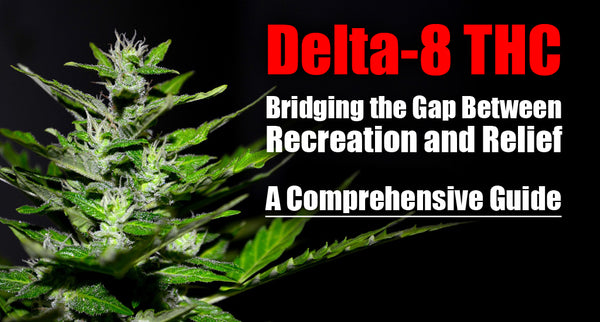
Effective Pest Control Strategies for Thriving Cannabis Plants
Growing cannabis, be it indoors or outdoors, comes with its own set of challenges, pest control being a significant one. For those seasoned in cultivation, the battles with pests like white flies, spider mites, and thrips, or dealing with bacterial and fungal nuisances like mold and mildew, are all too familiar. Tackling these issues effectively is key to ensuring a bountiful harvest.
Choosing the right pesticide is crucial, and they're not all created equal. You'll find them in categories like biochemical, microbial, or plant-incorporated protectants. The best fit depends on factors like the scale, location, and style of your grow operation. This article delves into the safest and most effective pest control practices for both small-scale home growers and larger commercial setups.
First and foremost, 11 Pesticides you should Avoid
Then there are those pesticides which are very effective in the short term, but completely detrimental to the existing environment. Non-organic pesticides will harm with water run-off which can damage and erode the soil and bring toxic chemicals into existing water supplies and ecosystems.
They can also completely wipe out beneficial insects and bacteria and sterilize the favorable system you may have built up in your growing operation. At worst, they can cause chronic illness in you and your loved ones as well as pets, and other life in the surrounding area.-
Avid: Avid is a foliar chemical pesticide that contains chemicals toxic when ingested or epidermally absorbed by beneficial insects and humans. It’s also harmful to the environment. If a plant is heavily infested, it's better to burn it to prevent spreading the infestation and the risks associated with Avid's environmental degradation.
-
Floramite: Floramite, another foliar solution chemical pesticide, causes lasting damage to living entities that encounter it. Identified as an irritant, health hazard, and environmental hazard, its use results in more harm than the temporary relief from pests.
-
Neonicotinoids: Widely used, these synthetic insecticides have been linked to harmful effects on bees and other pollinators, as well as aquatic invertebrates and birds. They can persist in the environment, contaminating soil, water, and air.
-
Organophosphates and Carbamates: Highly toxic, these chemical pesticides pose significant risks to human and environmental health, including harmful effects on beneficial organisms and potential health problems in humans.
-
Pyrethroids: Synthetic versions of natural insecticides, they pose risks to non-target organisms, including fish, bees, and birds.
-
Eagle 20 (Myclobutanil-based pesticides): While effective in agriculture, myclobutanil can turn into hydrogen cyanide when combusted, leading to serious health complications.
-
Avid and Lucid (Abamectin-based insecticides): Common in ornamental plants, high exposure to these insecticides can result in severe health issues.
-
Mustang, Athena, and Talstar (Bifenthrin-based insecticides): These can cause respiratory irritation and, in large quantities, severe health effects, and have been classified as a possible human carcinogen.
-
Confidor and Gaucho (Imidacloprid-based insecticides): Commonly used in crops, short-term exposure can cause a range of health issues including eye irritation and dizziness.
-
Pyrethrins: Although organic, pyrethrins can be hard to detect in lab studies and can cause nervous system damage in humans.
-
TetraSan 5, Eschaton, and Zeal (Etoxazole-based insecticides): Used on ornamental plants, these are not recommended for human consumption due to potential health risks.
Safe At-Home Solutions
It goes without saying that the more natural a pest control method, the safer it is for you and for the surrounding environment. But the most important thing to note for organic and all-natural pesticides is that they work more slowly and require a lot of consistent application.
It’s also important to apply oils and solutions carefully on leaves and prevent them from getting too deeply into soil. Too much of any additive can alter soil pH, changing the way your plant produces buds. So, maintain vigilance and caution when choosing and applying pesticides.
- Beneficial Insects: The most effective method for a small farmer outdoors is to introduce beneficial insects that attack unwanted pests. This ranges from ladybugs and lacewings, which feed on aphids and mites, to beneficial nematodes that are incorporated into soil and prey on larval stage insects, like harmful nematodes. There are several distributors, like Grow Organic, that sell beneficial insects for this purpose.
You can also companion plant and grow things that will invite helpful insects into your outdoor growing area. For example, ladybugs like cosmos, cilantro, and fennel. Helping plants like these can be purchased from your local nursery, or started from seeds. Seed distributors like Seed Savers Exchange will have the best quality, non-GMO seeds. Why not add a culinary plant to your grow operation and bring in some allies at the same time?
- Essential Oil Foliar Applications and Insecticidal Soap: The most common organic pest control application in gardens all over is Neem. The oil is extracted from the seeds of a tree and either diluted for a direct foliar application or converted into powder or concentrate. Its intense garlicy-oniony smell repels insects that might otherwise find your cannabis leaves tasty.
Due to the smell, it may be worth mixing neem oil or concentrate with another essential oil (like lavender or peppermint) to dampen the intense aroma. In conjunction with neem, other essential oils can strengthen your mix. But it’s best to do a little research before you decide to combine various oils, and it’s important to be careful when applying so as not to disadvantageously alter the soil composition you have taken time to cultivate. Due to the natural basis of oils of this kind, they are safe for human ingestion. Neem and essential oil blends can be purchased from Mountain Rose Herbs.
Related to essential oil applications is insecticidal soap. Insecticidal soaps are commonly used for insect infestations (mites, flies, and aphids). It’s a solution of cooking oil, castile or dish soap, and warm water. There are also commercial blends available that are already mixed. This is an effective pesticide, but again, requires a lot of consistent application, and soil monitoring to be effective. The solution is usually sprayed directly on leaves after wiping visible insects off the plant. During the application process, it’s important to ensure the undersides of leaves are checked as well. Pests will often move to the bottoms of leaves to avoid being killed or removed. Like the previous methods discussed in this article, insecticidal soap is safe to ingest, but it may be worth washing the plant before combusting.
- BT, or Bacillus Thuringiensis: This type of beneficial bacterium, when sprayed as a foliar solution, will help combat worms (most notably, caterpillars). The way it works is by causing an infection in leaf-hungry pests at all levels and stages of life.
Any eggs, nymphs, or adult leaf munchers are susceptible to BT. And even though it attacks them, it leaves beneficial insects alone. So, it can work in conjunction with introducing beneficial insects either via companion planting, or human introduction. BT is safe for humans to touch or ingest, however, it can cause irritation if contact is made with eyes.
- Additional Safe Home Pesticides: Other options include Spinosad, a soil bacteria-derived organic insecticide; Horticultural Oils for pest control without residue; Alcohol & Water solutions for direct bug elimination; Diatomaceous Earth for dehydrating smaller insects; Floating Row Covers as a physical barrier; and various Traps to capture bugs. Each of these methods offers a unique approach to pest management, focusing on safety and effectiveness.
Remember, prevention remains the best approach. Keeping a clean growing environment and regularly monitoring plants helps prevent pest infestations before they start.
Top 5 Essential Strategies for Effective and Safe Pesticide Use in Home Cannabis Cultivation
-
Choose Organic Pesticides: Organic options are safer for home growers, being environmentally friendly and derived from natural sources like plant extracts and beneficial microbes. They are less harsh than chemical pesticides and are suitable for most home cultivation scenarios.
-
Follow Manufacturer’s Recommendations: Always use pesticides from reputable brands and strictly adhere to their guidelines. This includes understanding the ingredients, toxicity levels, and precautions necessary for safe application, ensuring the health of both the plant and the grower.
-
Use Personal Protective Equipment (PPE): To minimize exposure to harmful chemicals, wear appropriate PPE, such as chemical-resistant gloves, protective clothing, and eye protection. This is crucial when mixing and applying pesticides, as it prevents skin and respiratory exposure.
-
Handle Pesticides with Care: Respect and carefully handle pesticides, especially in home settings. Choose products specifically designed for home use, as they are typically milder and easier to manage. Also, restrict access to the treated area to protect others and pets from exposure.
-
Conduct a Patch Test: Before fully applying a new pesticide, perform a patch test on a small part of the plant. This helps determine the pesticide's suitability and ensures it won’t adversely affect the plant. If any negative reactions are observed, opt for a different, less concentrated pesticide.
These strategies focus on using pesticides safely and effectively in a home growing environment. By choosing the right products, following safety protocols, and testing for compatibility, home growers can manage pests efficiently while ensuring the safety of their plants, themselves, and the environment
Commercial Grow Pesticides
But what of growing operations that exceed 6 personal use plants? Although all the methods listed above could be effective in a commercial-sized grow, there are organic, safe options that work just as effectively and faster. Here are a few of the commercially distributed solutions for controlling pests on marijuana plants.
All of these products are safe for humans and won’t do more than cause irritation on the skin if contact is made. If you’re looking for something a little faster than your homemade pest control solutions, look no further. All of these products are applied by diluting and spraying on the leaves of your plants.
-
Green Blaster Cannablast: This foliar solution contains water and natural enzymes, tackling pests without hazardous chemicals. It's environmentally friendly and also promotes stronger root development.
-
The Amazing Doctor Zymes Eliminator: A versatile foliar spray that uses citric acid for controlling a wide range of insect life stages and mold. It's important to use it judiciously to avoid altering soil nutrients.
-
PureCrop 1: Made with food-grade oils and nanotechnology, this product is effective against a variety of infestations and aids in nutrient uptake.
-
Neem Oil and Azadirachtin: Excellent for managing mites, aphids, and preventing fungal infections, these are applied preventatively or as a treatment.
-
Pyrethrums: Derived from chrysanthemums, effective against thrips and other insects, ideal for organic approaches.
-
Bacillus Thurengensis (BT): Targeting insect larvae, particularly fungus gnats, without harming beneficial insects.
-
Beneficial Nematodes: Useful for soil-born pests like fungus gnats, these microscopic critters enhance soil health.
-
Soap Solution: Effective against aphids, scales, and mites, it's a simple yet efficient choice for mild infestations.
-
Diatomaceous Earth: A natural, dehydrating agent for bugs, suitable for preventive and active infestation control.
-
Essential Oils (Rosemary and Eucalyptus): Natural repellents that are safe and aromatic.
-
Pyrethrin: Natural and effective, but should be used with care due to potential irritant properties.
Each product offers unique advantages for large-scale cannabis cultivation, ensuring effective pest control while maintaining safety for both the grower and the environment.
Advanced Pesticide Strategies for Commercial Cannabis Cultivation: Ensuring Safety and Compliance
For commercial cannabis cultivation, implementing effective and safe pesticide strategies is crucial. Here are the top strategies:
-
Integrated Pest Management (IPM): Implementing IPM principles is the first step. This includes establishing an action threshold to decide when to use pesticides, understanding the pest's life cycle, implementing proactive measures like removing infected plants and regular scouting, and choosing the least toxic pesticide that meets your goals. This approach minimizes pesticide use while ensuring effective pest control.
-
Follow Label Instructions: The label of a pesticide is legally binding and contains crucial information. This includes active ingredients, toxicity levels, first aid instructions, precautionary statements, required PPE, application directions, and storage and disposal instructions. Adhering to these guidelines ensures safe and legal pesticide use.
-
Worker Protection Standards (WPS): Compliance with federal WPS is essential. This involves choosing formulations and application methods that minimize exposure, mixing pesticides in well-ventilated areas, preparing only the required amounts, and proper disposal methods.
-
Preparation for Spills and Ventilation: Being prepared for spills with appropriate materials and knowing first-aid procedures is essential. Ensure good ventilation, especially in indoor facilities, to avoid inhalation hazards. Use the correct mixture rates and wash hands thoroughly after handling pesticides.
-
State Compliance and Best Practices: Adherence to state guidelines is paramount, especially in areas with vague regulations. In such cases, cultivators can refer to states like Colorado, Washington, or Oregon for approved chemical lists. Reviewing state testing requirements helps determine the right chemicals to use. It’s also crucial to have a well-designed facility that incorporates cultural and mechanical controls and to use beneficial insects as part of the IPM program.
Commercial cannabis growers must balance effective pest control with safety and legal compliance. This involves careful selection and use of pesticides, adherence to regulatory guidelines, and the implementation of comprehensive IPM strategies.
Top 5 Pest Free Growers in Washington State
If you’re looking to purchase marijuana products from organic farmers in Washington state, here is a list of the top 5 growers. Pesticide disclosure statements are included on the page after click through where applicable.
-
BBB Farms: this farm uses only organic pesticides, and also sells products for topical use. They sell pre-rolls, and extracts as well. If you’re near Elk, Washington, give them a visit!
-
Bodhi High: growing safe products for customers is key for this distributor. Therefore all plants are completely pesticide free, and all plants are grown indoors in a climate controlled area. Located in Medical Lake, Bodhi High has been growing for a long time and only partners with other pesticide free manufacturers.
-
Bud Co Farms: this Spokane, Washington farm uses only one organic pesticide at the vegetative stage of growth. Aside from that, the entire operation is directed by hand. That means trimming, growing indoors, and using high nutrient content soils.
-
Deluge: also located in Spokane, and formerly known as Kush Comfort Farms, these growers believe in a solventless extraction which not only protects humans who ingest the solvent, but also doesn’t degrade the integrity of the product. There are also no pesticides used in their operation.
-
Dogtown Pioneers: in Clayton, Washington, Dogtown Pioneers is growing using only Insecticidal Soap and a combination of Rosemary and Clove oil to control pests. As mentioned above, these two methods are some of the safest out there. Give them a look up!
Conclusion
To sum it up, organic pesticides will generally be safer for your plant and the surrounding environment. Leaning toward higher concentrations of chemical solutions could cause more harm than good in the long run, despite leaving your plants looking nice. But even organic pesticides can cause harm when applied improperly. The best form of pest control overall is a caring attitude toward your plants and a willingness to spend time monitoring their well-being, and applying treatments as needed. Happy Growing!



